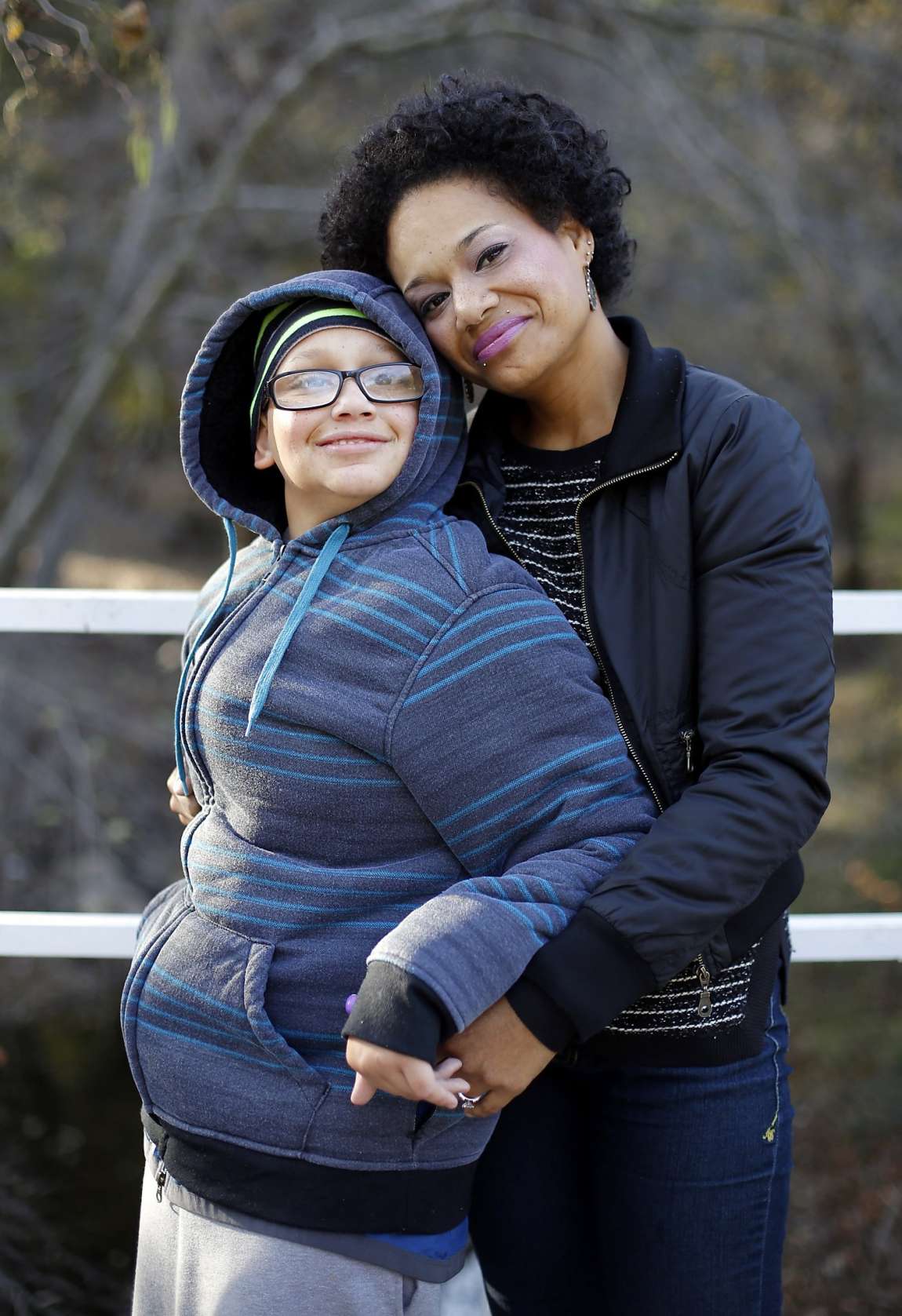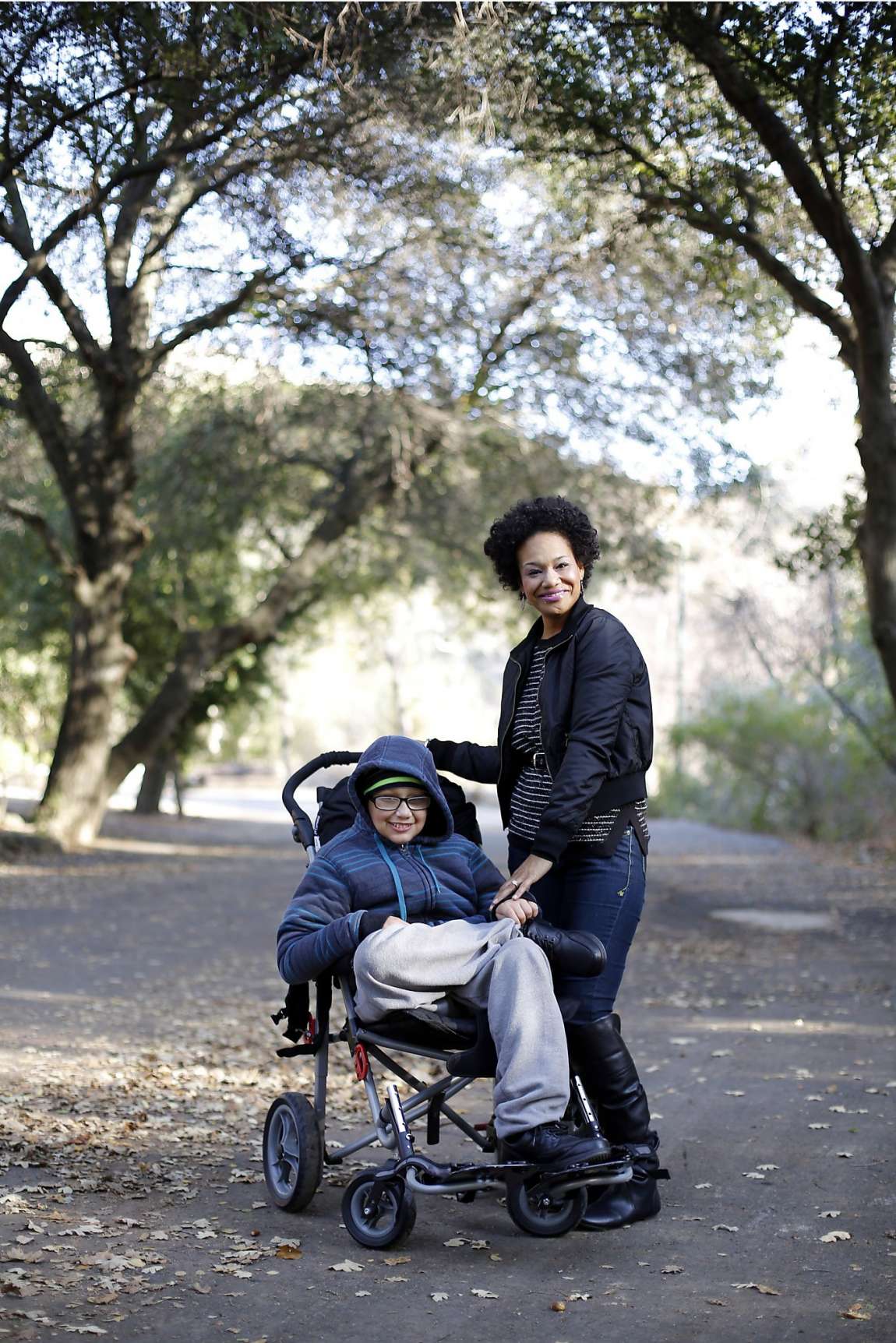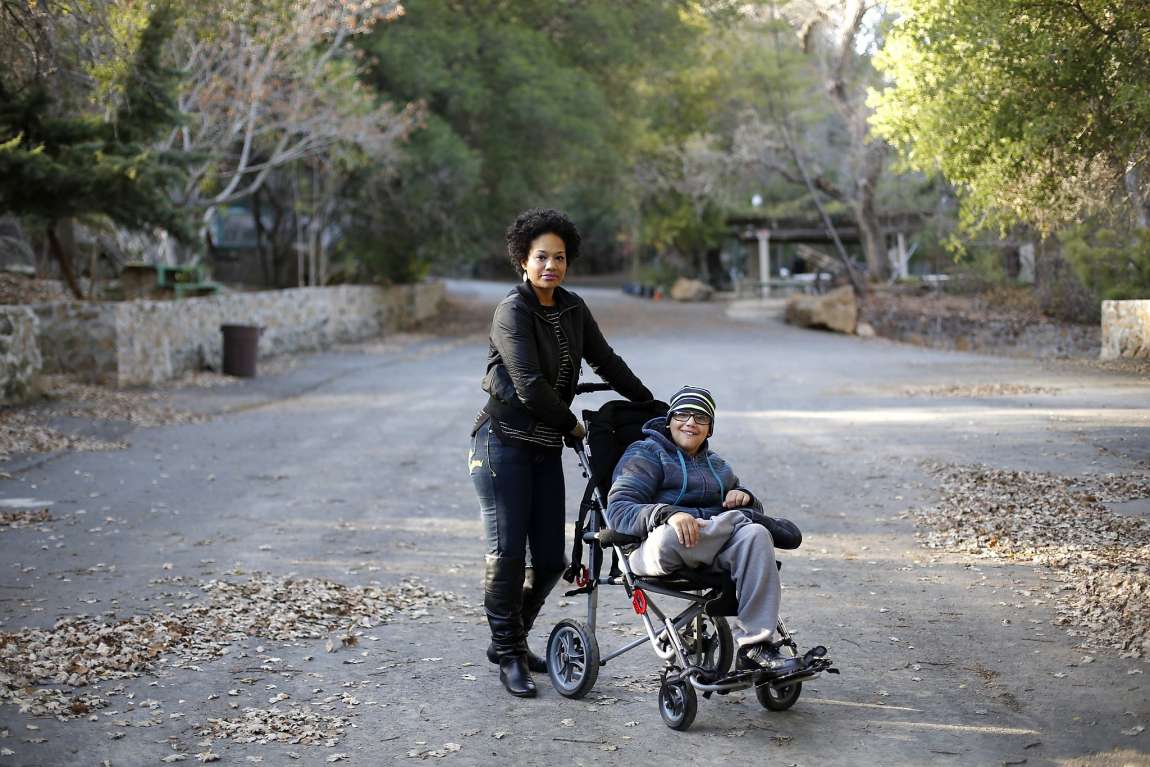
Saylean Barham had planned on losing her apartment.
With the end of her lease approaching, Barham paid off her bills, sold all her things and bought plane tickets for her and her disabled son to her home state of Hawaii.
Barham, a 43-year-old single mom, was ready to start over.
Then the notice came: a court order from her estranged husband that prevented her from leaving California.
She couldn’t return her plane tickets. She didn’t have a job. She didn’t have a home. Her son, a sweet-faced 16-year-old boy with autism, cerebral palsy and pica disorder, needs round-the-clock care.
And so began a routine she would repeat every day with no end in sight: a careful mining of resources and listings, looking for shelters, cheap motels and willing friends or relatives to find a place to sleep.
It’s scary when you’re out there with your child, not sure where you’re going to go
It became her full-time job.
“I was on this mission every day of finding a place to stay every night,” she said. “I would call places or show up and they would turn us away. I was just trying to find shelter.”
Kimo Jeremiah Barham, 16, has trouble walking. He communicates through noises and short, three-word sentences or single-word exclamations. He tears paper and shreds clothing compulsively. He has trouble sleeping through the night.
And though he was the reason Barham needed to find shelter so desperately, he also complicated matters.
Some facilities built to house women and children enforce age limits for boys — and at 16, Kimo was too old for many of the programs.
Others had strict house rules about eating, curfew, noise.
“It’s scary when you’re out there with your child, not sure where you’re going to go,” she said.


Food and shelter
Some days, the mother and son would spend hours in her orange Kia driving around the Bay Area, searching for food and shelter.
At night, they relied mostly on motels and friends’ floors and couches that they would share for a night at a time.
On a few occasions, Barham said, she thought they would have to sleep in her car.
Meanwhile, her divorce was proceeding, and she was shuttling Kimo to supervised visits with his father in Modesto.
“It’s frustrating, because that’s time and money I’m spending on gas and driving that I could be using to take care of things for us,” she said.
Barham, a deeply religious woman, believed all along that God would see her and her son through their time of struggle — just as she had found salvation at her lowest points in the past.
Though Barham was raised in Hawaii as a Jehovah’s Witness, by the 1990s, she was spending her days in a drug-fueled blur.
High on crack and methamphetamine, the young mother stayed awake for days at a time. To escape the violence of her marriage and the chaos of her life, Barham said, she would smoke until the lines between reality and delusion were incomprehensible.
One day, holed up in a drug den, with crack rocks littered across the stove, Barham found herself in front of a mirror, seeing her reflection for the first time in days.
She had never seen herself that way before, she said.
“In that moment, I hated who I was,” she said. “I hated who I had let myself become.”
She quit the drugs, but found alcohol. It took another 10 years before she found God and overcame her addictions for good.
Arm injury
In 2007, Barham’s left arm was ripped open in a car accident that sent her and her then-husband to the emergency room.
The couple had been arguing when she grabbed the steering wheel from her husband’s hands, jerked it to the right and sent the car careening off the road.
“I didn’t want to die,” she recalled. “But after years of abuse and of hearing you’re worthless, at some point, something inside you just snaps.”
Barham suffered nerve and tendon damage that still causes pain.
The day after she was released from the hospital, she packed her bags, took Kimo and his older sister, now 18, and left.
She didn’t know where she was going to go then either, she said. But she was better prepared: She had a job, she had help with Kimo, she never had to wonder where their next meal, or their next bed, would be.
I think of not having what he needs and what’s going to happen to him when I die,” she said. “I need to get home (to Hawaii). I need to make sure that he has a future, that no matter what happens to me, he’s going to be taken care of.
An energetic woman with bright eyes and a warm smile, Berham prefers to give than receive. She has worked as a missionary with the Christian group Youth With a Mission, and had planned to join them in Hawaii when she returned to the islands.
She doesn’t like asking for help.
But as Kimo’s sole caretaker, she said, she’s had to swallow her pride and do whatever it takes to provide for her son.
After weeks of uncertainty, Barham found a small cottage for $900 a month in the hills of Clayton, where she felt peace for the first time in weeks.
Barham, who receives state and federal assistance in addition to selling her hand-made jewelry, couldn’t afford the deposit. So she asked The Chronicle’s Season of Sharing fund if it could help.
Season of Sharing provided the deposit plus two months rent to get her and Kimo set up in their new home.
“It’s a start for her,” said Michael Hopfe, Barham’s case manager with the nonprofit Independent Living Resources in Concord. “It’s not the easiest out there, but it’s something for her to get a start.”
The first night, she said, they slept on an air mattress laid atop the tile floor of the cold cottage. It was the easiest sleep she’d had in weeks.
Still, she worries about what’s to come.
“I think of not having what he needs and what’s going to happen to him when I die,” she said. “I need to get home (to Hawaii). I need to make sure that he has a future, that no matter what happens to me, he’s going to be taken care of.”
Marissa Lang is a San Francisco Chronicle staff writer. Follow her on Twitter: @Marissa_Jae
The original article can be found here.
